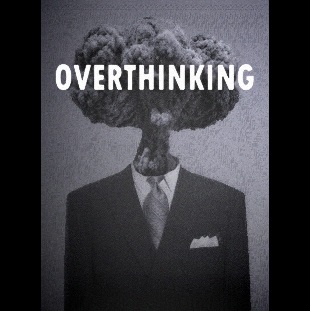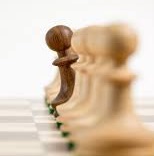
One day, in searching for “happiness” on Google (as many people do), happiness appeared as a man and woman in hip medieval clothing.
Is that how you picture happiness?
Is happiness a warm puppy like Charles Schultz said in 1962? Is happiness that simple? Is it a moment of satisfaction with whatever your “warm puppy” is?

Or is happiness a warm gun as the Beatles sang it in 1968? Said John Lennon, “I thought it was a fantastic, insane thing to say” (Beatles Bible).
“Project Happiness” (where the science of happiness meets the art of living) says that 10% of happiness is due to circumstance, 50% comes from genes, and 40% comes from activities like forgiveness and gratitude. With practice, they say, you can make yourself happy. But what if, instead of making yourself happy, you make someone happy?
What then?
 It’s strange. We feel so alone. Talk to someone and there’s a gulf between. We’re a universe apart. We don’t see how the consciousness looking back at us is the same as our own. The profound is hidden in the ordinary.
It’s strange. We feel so alone. Talk to someone and there’s a gulf between. We’re a universe apart. We don’t see how the consciousness looking back at us is the same as our own. The profound is hidden in the ordinary.
To look into another’s eyes and see love and mercy reflected there is a rare happiness. We grow up forming a healthy self-image but gain wisdom by letting it go (Jung).
A self-image is developed through what we say and think about ourselves and what others say of us. If that self-image is overly negative, inaccurate, or inflated, it creates problems.
 It’s hard to see a self-image (Latin ego “I”). It hides behind opinions believed true, but if you follow the trail of emotions it leaves behind like anger at a slight or jealousy or a need to win and so on, in those emotions you find ego. It’s a condemning voice inside your head that’s critical and blaming.
It’s hard to see a self-image (Latin ego “I”). It hides behind opinions believed true, but if you follow the trail of emotions it leaves behind like anger at a slight or jealousy or a need to win and so on, in those emotions you find ego. It’s a condemning voice inside your head that’s critical and blaming.
But, “Smile,” says the research. “It’s good for your brain.” Who cares if you look insane?
The thinking is that if you’re not happy, there’s something wrong with you. Maybe that explains why antidepressant use went up 400% in the US between 2005–2008 (Harvard Medical School).
 Too bad they don’t work – at least, according to the New England Journal of Medicine (Huffington Post, 2011).
Too bad they don’t work – at least, according to the New England Journal of Medicine (Huffington Post, 2011).
Kirsch (2014) said, “Instead of curing depression, popular antidepressants may induce a biological vulnerability making people more likely to become depressed in the future” (Antidepressants and the Placebo Effect).
So, “What are you gonna do?” (language warning)
In Google, if you do a search for what “happiness” looks like, you’ll see images like the ones below:

Happiness appears as beaches, beautiful skies, people with arms open wide at sunrise and jumping at sunset, we see ladies with balloons and a parasol soaking up sunshine and summer fields. As you look at these images, the word “freedom” might come to mind. The word freedom comes from Old English ‘freo’ meaning, “not in bondage, acting of one’s own will, noble, joyful” (Online Etymology Dictionary).
So, does freedom look like happiness? A search for the word freedom shows the following images. 
Again we see sunshine, that same woman with a parasol and people with arms open wide as if to fly. Maybe Frank Sinatra was onto something when he sang, “Fly Me To The Moon.” From these images the word spirit, as in, “happy spirits” and “free-spirited” comes to mind.
 The word spirit comes from Latin “spiritus” meaning, “breathing.” Like “moo” or “BANG” such words mean their sound. Spirit is like that. It is an imitation of breathing (Online Etymology Dictionary).
The word spirit comes from Latin “spiritus” meaning, “breathing.” Like “moo” or “BANG” such words mean their sound. Spirit is like that. It is an imitation of breathing (Online Etymology Dictionary).
An image search of the word spirit showed images from a Disney movie, but undeterred, entering the word “spiritual” reveals the images shown below.

Again we see beautiful skies, sunshine, beaches and arms open wide. Maybe Enya was onto something when she sang “Only Time.”
 What if, instead of categorizing things into two opposites (either-or, self-other, good-bad, life-death, happy-sad…) we consider opposites as one process like a game of ping pong.
What if, instead of categorizing things into two opposites (either-or, self-other, good-bad, life-death, happy-sad…) we consider opposites as one process like a game of ping pong.
 Without ping there is no pong. Happiness (ping) goes with sadness (pong). Life (ping) goes with death (pong).
Without ping there is no pong. Happiness (ping) goes with sadness (pong). Life (ping) goes with death (pong).
Happiness might not be about getting what you want and having a good time all the time. Happiness could be a love of life in all its aspects – pleasant and unpleasant.

A self-image is like putting on eye-glasses. As Clark Kent, the world looks different. How we think colours everything we see. Should you take off your glasses of personality, you might enjoy reality (even if it is fuzzy). Maybe that’s what a higher consciousness experience is: It’s a union with reality. You see everyone and everything as interconnected. You see beauty.

When you focus on breathing, you are aware of it (in-out, in-out, repeat), but when you stop focusing, breathing continues. We are breathed in the same way that grass grows and produces the oxygen we need. It’s all a relationship. It’s all connection.
 Life is a doing. It’s happening (see the Supreme’s sing “The Happening,” 1967). We might feel isolated, but that isn’t how it is.
Life is a doing. It’s happening (see the Supreme’s sing “The Happening,” 1967). We might feel isolated, but that isn’t how it is.
A feeling of happiness doesn’t depend on what you know or do. You can’t make progress in it. You can’t do anything or not do anything to get it.
Happiness comes when you are so adapted to pleasure and pain that you say, “I love it!” No matter what happens. Like the Bad Finger song, “Knock down the old grey wall. Be a part of it all. Nothing to say, nothing to see, nothing to do,” you get it because you got it (see: Bad Finger “No Matter What”).
 Let go your eggo (aka ego) and go out there and let the universe happen as you.
Let go your eggo (aka ego) and go out there and let the universe happen as you.
Enjoy.

References
- Happiness (14th century) (Wikipedia)
- Beatles Bible
- Project Happiness
- How Smiling Changes Your Brain
- 5 Ways to Make Yourself Happier in the Next 5 Minutes (Psychology Today, 2014)
- Harvard Medical School
- Huffington Post (2011)
- Antidepressants and the Placebo Effect (2014)
- Online Etymology Dictionary.
- Science of Happiness



 Really? A cat is a complex machine. You’re a complex machine. No wonder people treat each other like machines. According to science, we are machines.
Really? A cat is a complex machine. You’re a complex machine. No wonder people treat each other like machines. According to science, we are machines.





 You see, it’s because of our brains. We either over-think and make it complicated, we under-think and act on insane urges or we multi-task and miss everything.
You see, it’s because of our brains. We either over-think and make it complicated, we under-think and act on insane urges or we multi-task and miss everything. Our brains send messages. Sometimes these messages are destructive—ask anyone in therapy, rehab, prison or who is about to blow himself up. Not only do we deceive ourselves, other people trick us with their deceptions and w can become like pawns in the game of life, sacrificed for someone else’s idea of enjoyment.
Our brains send messages. Sometimes these messages are destructive—ask anyone in therapy, rehab, prison or who is about to blow himself up. Not only do we deceive ourselves, other people trick us with their deceptions and w can become like pawns in the game of life, sacrificed for someone else’s idea of enjoyment. Picture brain messages symbolically like they do in cartoons with a devil-you and an angel-you on each shoulder arguing their case for you to decide (see
Picture brain messages symbolically like they do in cartoons with a devil-you and an angel-you on each shoulder arguing their case for you to decide (see  On one side are symbols of light, innocence and wholesomeness (sappy?) and on the other, just the opposite (exciting?). In the battle between it comes down to focus. What do you choose to enjoy?
On one side are symbols of light, innocence and wholesomeness (sappy?) and on the other, just the opposite (exciting?). In the battle between it comes down to focus. What do you choose to enjoy? Do you take the gentle path of life as represented in Wordsworth’s poem, “I wandered lonely as a cloud; That floats on high o’er vales and hills; When all at once I saw a crowd; A host, of golden daffodils“? Or is that boring? “
Do you take the gentle path of life as represented in Wordsworth’s poem, “I wandered lonely as a cloud; That floats on high o’er vales and hills; When all at once I saw a crowd; A host, of golden daffodils“? Or is that boring? “ Do you prefer your entertainment on the excitingly evil side? How about delightful depravity and edgy cruelty that’s funny too? What’s your pleasure? Do you choose a quiet read, a walk in the park, a pint with a friend, or ‘gorified’ death in a Zombie Apocalypse?
Do you prefer your entertainment on the excitingly evil side? How about delightful depravity and edgy cruelty that’s funny too? What’s your pleasure? Do you choose a quiet read, a walk in the park, a pint with a friend, or ‘gorified’ death in a Zombie Apocalypse? Wholesome isn’t a word used much these days. It alludes to marketing all-natural breakfast cereals and family values but back in the year 1200 wholesome meant “of benefit to the soul.” It comes from the word “whole” meaning “healthy” (undamaged, entire, safe) and “-some” meaning “tending to” (
Wholesome isn’t a word used much these days. It alludes to marketing all-natural breakfast cereals and family values but back in the year 1200 wholesome meant “of benefit to the soul.” It comes from the word “whole” meaning “healthy” (undamaged, entire, safe) and “-some” meaning “tending to” (




 People speak of being in high spirits and low spirits depending on mood. A mood is coloured by thought. Think angry thoughts, see red; think sad thoughts, get the blues. Think envy, go green. Mandatory happiness is phoney. To enjoy life is to feel all the colours without necessarily acting on them. You’ve got to go with it and get what you need.
People speak of being in high spirits and low spirits depending on mood. A mood is coloured by thought. Think angry thoughts, see red; think sad thoughts, get the blues. Think envy, go green. Mandatory happiness is phoney. To enjoy life is to feel all the colours without necessarily acting on them. You’ve got to go with it and get what you need.